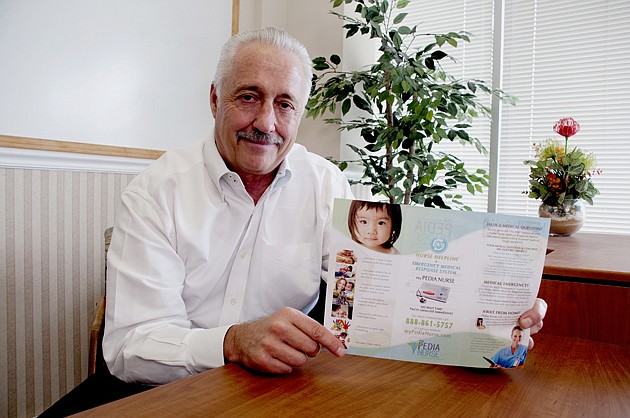- November 24, 2024
-
-
Loading

Loading

Chuck Kienzel is familiar with caretaking. Frequent trips across the state to take care of his aging mother-in-law with Alzheimer's took an emotional toll. It also motivated Kienzel to start on a new company that emerged him from retirement.
After selling security systems in Columbus, Ohio, for decades, Kienzel moved to Florida in 1987 to start his own company. He sold that firm in 2002 to retire, but he decided two years ago to go back to work to create Bradenton-based Nurse Alert. “I would only do it if I could find a better way, and I did,” Kienzel says.
People may be familiar with personal emergency response systems (PERS), from the famed “I've fallen and I can't get up” commercials. When there is an emergency, a person with the device pushes a button and gets connected with a call center that dispatches emergency personnel or contacts a “key person” in his or her file.
Kienzel's idea, Nurse Alert, takes that idea a step further. Although the device looks similar, the press of the alert button connects users to a triage center with specialized medical professionals, either a pediatric nurse or geriatric nurse with more than 10 years of experience. The nurse on the line also has access to the patient's medical records within 40 seconds of the alert. This enables the nurse to give advice or recommendations, or to call for other help if needed.
A triage call center isn't new, but connecting it to an alert system is. The triage center is its own entity, used by the military, hospitals after hours and other care-taking organizations.
Aside from reaching the older demographic, Kienzel wants to diversify his users by reaching a younger generation through Pedia Nurse, an alert system for children. Kienzel says no one else currently provides this type of service for children, and offering both versions allows him to reach the sandwich generation. This refers to those who find themselves taking care of young children and aging relatives at the same time.
One of Kienzel's top selling points is his customers' ability to handle health concerns over the phone rather than during a hospital visit, saving time and money. Kienzel says Nurse Alert is the most economical way to provide service, peace of mind and it prevents unnecessary trips to the doctor. Compare a doctor's bill with Nurse Alert's monthly $30 service fee.
Kienzel declined to share Nurse Alert's annual revenues, but says he expects to see a 20% increase in sales this year.
Amid budget problems Medicare and Medicaid programs face, an in-home health line seemed a reasonable alternative for South Carolina Rep. Bill Herbkersman. Herbkersman proposed a pilot program using Nurse Alert, with the goal of lowering the state's Medicaid costs.
The program started by targeting Medicaid patients who had frequent trips to the emergency room. It gave 3,000 volunteers access to Nurse Alert's service in hopes that health concerns could be solved with a phone call and prevent a costly trip to the ER.
According to Kienzel, the program saved an estimated $58 million. Kienzel is talking with legislators in Tallahassee about a similar pilot program in Florida. “In my opinion it's a long ways away in Florida, but it'll happen,” Kienzel says.
Services from Kienzel's company are large steps forward in telemedicine, and all of the advances seem just in time for Kienzel. “I'm getting close to being a client,” he joked.